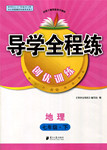题目内容
The Museum of Childhood is spread over 4 floors, with the first floor acting like a balcony around the edge of the building, so you can look down over the ground floor central hall with the shop, Information Desk and Benugo Café.
 The museum of Childhood is housed in a large Victorian building in east London. It has been on this site since 1872. It has undergone refurbishment (翻新) and reopened in 2006 and an elevator now makes all floors accessible.
The museum of Childhood is housed in a large Victorian building in east London. It has been on this site since 1872. It has undergone refurbishment (翻新) and reopened in 2006 and an elevator now makes all floors accessible. This is not a quiet place and children are allowed to have fun here. Child safety is extremely important and a member of staff remains by the front door at all times. Also, note the “Code of Behavior” notice, which includes: children under 12 must be supervised by an adult; no eating in the galleries and no running.
This is not a quiet place and children are allowed to have fun here. Child safety is extremely important and a member of staff remains by the front door at all times. Also, note the “Code of Behavior” notice, which includes: children under 12 must be supervised by an adult; no eating in the galleries and no running.Toy exhibits are in glass cases and there are plenty of low-level exhibits for younger children to see. The glass cases have lots of thought-inspiring questions on them to encourage discussion between adults and children. When you or the children need some quiet time, there are sofas at either end of the second floor with reading books available.
Pros: Many free activities for kids
Cons: Can be too warm inside
 Visit Duration: 1.5 hours
Visit Duration: 1.5 hours Opening Hours: 10:00 a.m. – 5:45 p.m. Last admission is 5:30 p.m.
Opening Hours: 10:00 a.m. – 5:45 p.m. Last admission is 5:30 p.m. The Museum is closed on 25 and 26 December and 1 January every year.
The Museum is closed on 25 and 26 December and 1 January every year. Admission: Admission the Museum is free. There is a small charge for some activities.
Admission: Admission the Museum is free. There is a small charge for some activities.48. In the Museum of Childhood, _______.
A.people can reach any floor by elevator B.there are sofas at either end of the first floor
C. there are exhibits on the museum history D.the Information Desk can be found on each floor
49. The Museum of Childhood may be attractive to _______.
A. parents who only have children under 12
B. children who are fond of toy exhibits
C. parents and children who need quiet time
D. kids who like playing games with their parents
50. What is the disadvantage of the museum?
A. Low-level exhibits are too boring. B. Children may feel slightly hot in it.
C. Parents have to stay with their kids. D. No staff members attend to the kids.
51. What information can we get about the museum?
A.All the activities for children are free.
B.The museum is located in west London.
C.Children are allowed to enter after 5:30.
D.The museum is unavailable on Christmas Day.
48---51 ABBD
略

练习册系列答案
 导学全程练创优训练系列答案
导学全程练创优训练系列答案
相关题目


